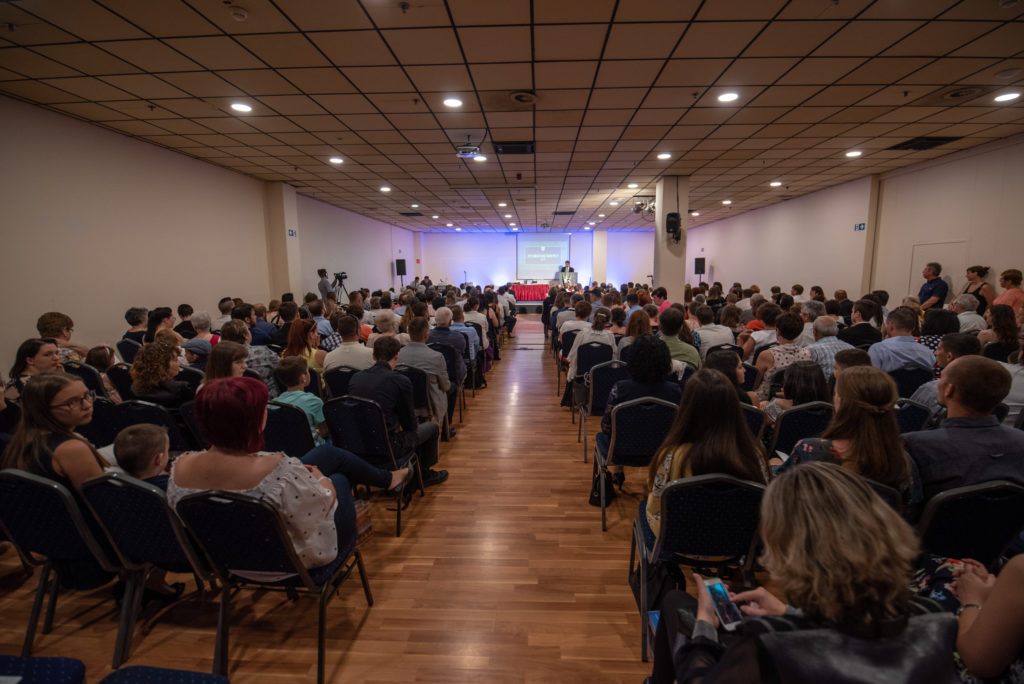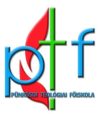You start
In October 1991, the Evangelical Pentecostal Community started a college with the aim of educating and training young people to serve the Lord in a Pentecostal environment. The first year of EPK's Bible College started in the village of Kadarkút in southwestern Hungary. The following year, the college moved to Budapest. Between 1992 and 1997, he held his classes in the central building of the Evangelical Pentecostal Community. In the early days, it was a great help that the ICI Foundation - International Correspondence Institute agreed to the free use of its curriculum.
New building
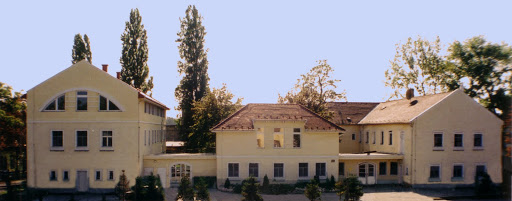
In December 1997, the Bible College moved to an XVIII. into an aesthetically renovated district building, and this is still the seat of the college. This building complex houses the offices, classrooms, library, kitchen, dining hall, prayer hall, and male and female dormitory rooms.
Between 1997 and 1999, we made efforts to modernize the college's curriculum and raise the academic standard of the training. Since 1999, the institution has Pünkösdi Teológiai Főiskola has a name.
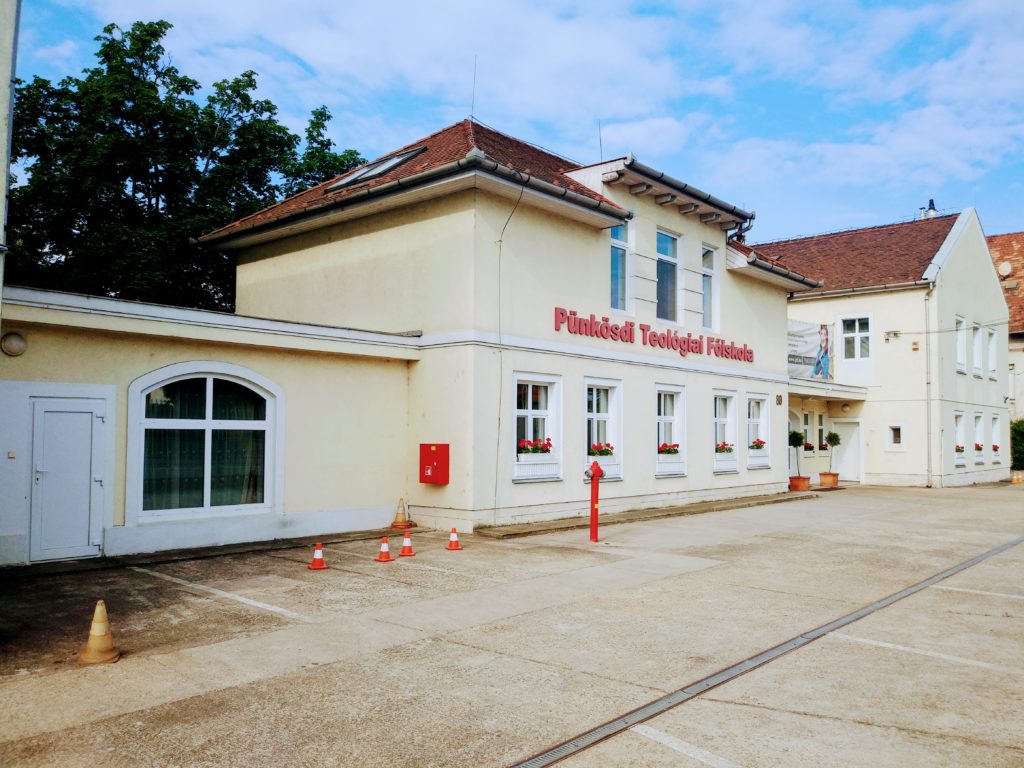
Development in the new millennium
With the beginning of the new millennium, the development of the college took a somewhat new direction. Although he continued to try to maintain and carry forward the achieved scientific results, which were mainly manifested in the training of teachers and the further development of the curriculum, the main emphasis was on the involvement of students in the service. Various mission groups were formed one after the other, which on the one hand targeted the real shortages around us, such as the homeless, prisoners, the blind, hospitals and others, and on the other hand provided the students with an excellent opportunity to make the theoretical knowledge acquired in the classes a part of their personality in practice. In this way, it was possible to achieve that 70% of the graduated students work in various fields of service throughout the country.
- Starting in 2002, the demand for the PTF's correspondence course increased by leaps and bounds. Although the increased workload posed a great challenge to the college, it was able to meet it.
- In the fall of 2003, credit-based training was introduced at PTF, which on the one hand makes studies more flexible, and on the other hand provides easier transfer between different educational institutions.
- In 2006, as part of the adaptation of the European Union's higher education strategy, significant changes were introduced in the Hungarian Higher Education Act. As a result, the PTF has undergone profound changes that increase the effectiveness of its educational activities and services. Within the framework of the basic education, students acquire the academic part of the education in three years. The training itself has become much more practice-oriented - the students' service is now included in the training framework and the prescribed number of credits. After three years of classroom education, students participate in a 2+5-month legation, which means full-time service at a church or other mission organization. With this, they supplement their theology degree obtained in three years with a pastor's qualification. As a result of hard work, the courses have become even more effective in preparing 21st century Christian workers.
- In 2007, as a significant development, we launched the Student Information System, which enables full-scale student administration in electronic form.
- In 2008, PTF received state-recognized, accredited certification for another 6-year period.
- In 2009, we expanded the institution's training spectrum with specialized continuing education courses, and launched the Online Bible School, which as a professional distance learning program helps train those interested in Christianity and the spiritual worker training of churches. From the same year, the PTF edits the theological magazine as its own Pentecost today launched a magazine and a distance learning program to help college courses.
- In 2012, the PTF's petition to start a MA in Theology was supported by the MAB plenum, so the first MA course started in September 2012. In order to create the conditions for the training, the teaching faculty was expanded with many new instructors.
- In 2012, the OH registered the PTF's one-year specialized further training, which provides an Evangelical pastor qualification.
- In 2012, we founded our research institute to coordinate, make more efficient, and organizationally integrate the research activities at PTF.
- In 2014, as a result of investigations by the Hungarian Higher Education Accreditation Committee, the accredited certification of our institution was extended until December 2019, 31.
- In 2015, we launched the "Coaching and Leadership with a Christian Approach" specialized further education course. In the summer of 2015, the Academic Department moved from its usual location to a neighboring but larger room, where administrative staff can work and students can manage their affairs in a beautifully renovated environment. The size of the new office allowed the business manager to carry out his work undisturbed in a separate room.
- In 2016, the institution adopted a research and publication plan for the research and publication of books on Hungarian Pentecostal history. As a result, the first work presenting the history of Pentecost in Hungary will be published at the end of the year. The launch of modular faith life courses with a low entry threshold begins. The entire educational wing will be air-conditioned and the institution will receive a new street fence.
- In 2017, the PTF will also make it possible to obtain an ICF certificate for coaching training. The entire building will have new doors and windows with 3-layer glazing.
- In 2018, the institution will launch the Child and Youth Protection Consultant specialized training. PTF compiles and outputs the Pentecost in Hungary volume in physical and ebook format in English, Pentecostals in Hungary with title. He edits and publishes a study volume entitled Faith and power. This year, he will replace the entire heat-generating system with the most modern one available.
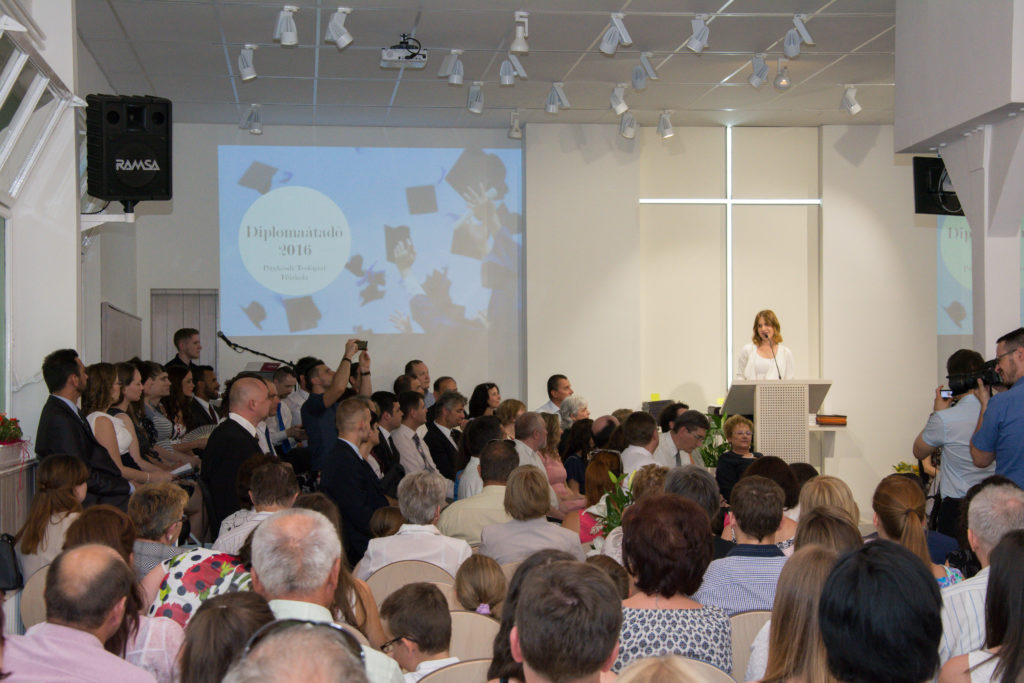
Graduation ceremony in 2016 at the Agapé Pentecostal Church in Budapest - In 2019, the institution treats as the most important priority that from the first of September with a hybrid method (online + classroom) to carry out the education. It is built up, its methodology is developed and it is delimited by regulations. All classrooms will be equipped with devices suitable for full online education, and the configuration and testing of the necessary applications will also be successfully completed. The education hybrid method begins in the school year.
